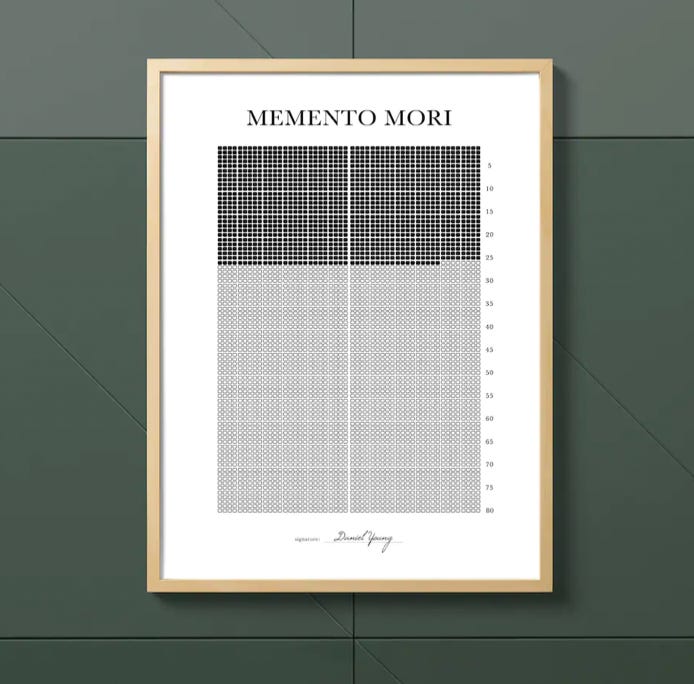Memento Mori
Memento Mori. Remember you will die.
I will admit I don’t like the English version of the saying. The Latin one slides over its grim meaning in a pleasing almost-rhyme that I can’t literally translate. The fuzziness of it all works better for me. But it is a philosophy that informs my decisions.
Memento mori is a Latin phrase that shares an idea with a famous Marcus Aurelius quote:
“In his Meditations, Marcus Aurelius wrote, “You could leave life right now. Let that determine what you do and say and think.” This Stoic reflection on the impermanence of life is known as Memento Mori, which is Latin for “remember you will die.””
Memento mori tells us to prioritize and to be a somewhat selfish in just two words, which is one of the things I love about Latin. So much meaning in a small package.
We are reminded that our time …
Keep reading with a 7-day free trial
Subscribe to The Tell with Christine Axsmith to keep reading this post and get 7 days of free access to the full post archives.




